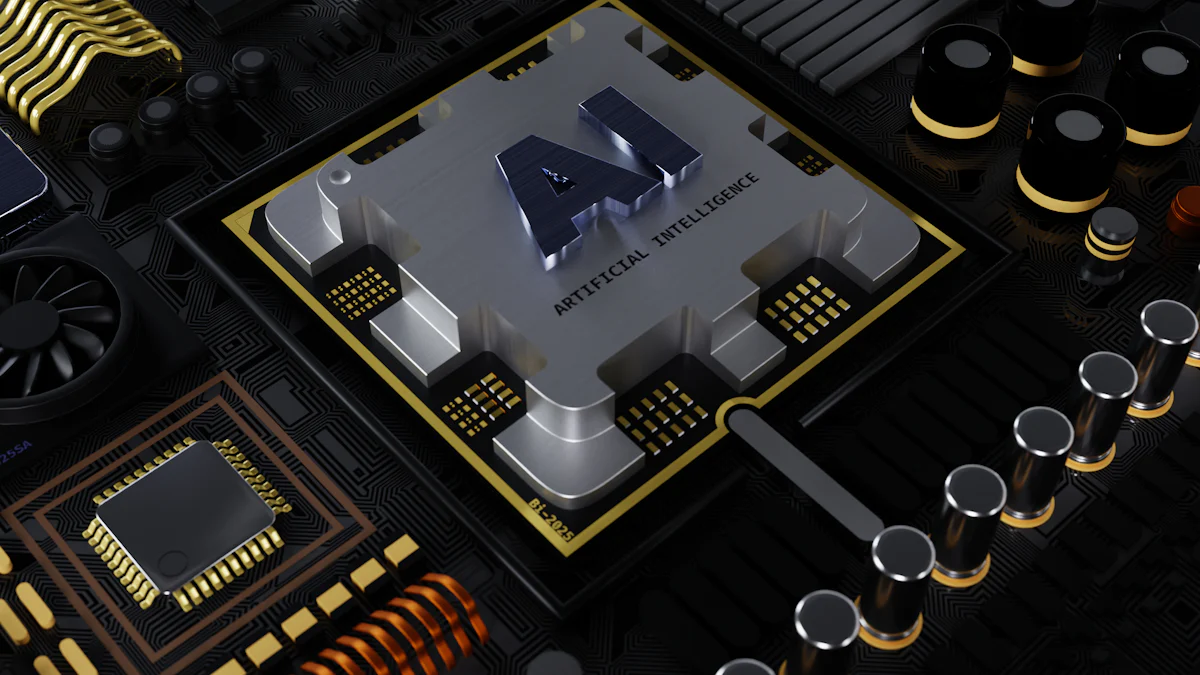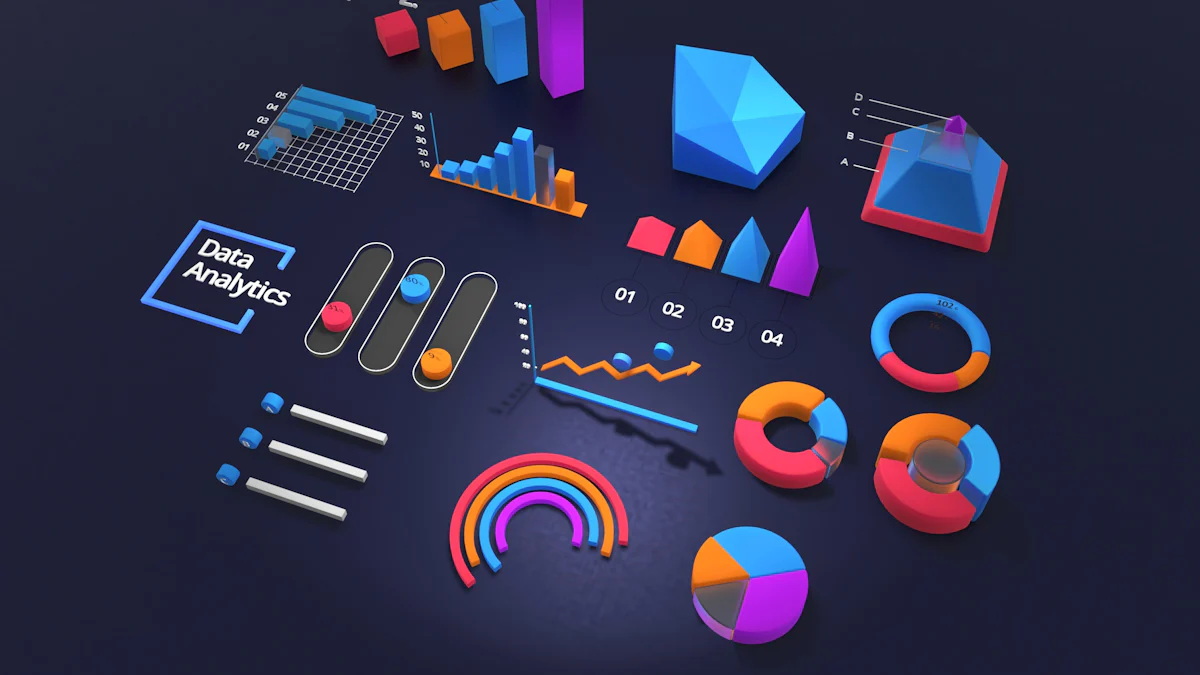Simply Artificial Intelligence

Artificial Intelligence is changing the world in ways you might not even notice. Every day, AI influences how businesses operate and how people live. Did you know that 73% of U.S. companies use AI in some aspect of their business? That's a big number! AI has the potential to boost employee productivity by about 40% by 2035. Understanding AI can give you an edge in this tech-driven world. Whether you're curious or looking to dive deeper, learning about AI opens up new possibilities.
Understanding Artificial Intelligence
What is Artificial Intelligence?
Basic definition
Artificial Intelligence, or AI, refers to computer systems that mimic human intelligence. These systems can learn from data, recognize patterns, and make decisions. AI involves the use of algorithms and computational approaches. These methods enable machines to perform tasks that typically require human intelligence.
Key characteristics

AI systems have several key characteristics. First, adaptability allows AI to learn from new data and improve over time. Second, automation enables AI to perform tasks without human intervention. Third, AI systems possess the ability to process large amounts of data quickly. These characteristics make AI a powerful tool in various fields.
Why Artificial Intelligence Matters
Impact on daily life
AI has a significant impact on daily life. Smart assistants like Siri and Alexa help with everyday tasks. AI-powered recommendation systems suggest movies, music, and products. AI also enhances communication through language translation apps. These applications show how AI simplifies and enriches daily experiences.
Influence on industries
AI's influence extends to many industries. In healthcare, AI assists in diagnosing diseases and personalizing treatments. Financial institutions use AI for fraud detection and risk management. AI optimizes supply chains and improves customer service in retail. These examples highlight AI's transformative role across different sectors.
Historical Development of AI
Artificial Intelligence has a fascinating history that stretches back decades. Let's dive into how it all began and the significant milestones that have shaped AI into what it is today.
Early Beginnings
Initial concepts
Artificial Intelligence started gaining attention in the mid-20th century. In 1956, a group of scientists gathered at Dartmouth College to explore the idea of machines that could think like humans. This event marked the birth of AI as a formal field of research. Researchers began developing tools to solve mathematical problems, which laid the groundwork for future advancements.
Foundational theories
The early theories of Artificial Intelligence focused on creating machines that could mimic human reasoning. Scientists explored concepts like neural networks and symbolic reasoning. These foundational ideas helped shape the direction of AI research. The quest to build intelligent machines sparked curiosity and innovation across the globe.
Technological Milestones
Major breakthroughs
Artificial Intelligence has achieved remarkable breakthroughs over the years. In 1997, IBM's Deep Blue made headlines by defeating world chess champion Garry Kasparov. This victory demonstrated the potential of AI in complex problem-solving. Fast forward to 2011, when IBM Watson won the quiz show Jeopardy!, showcasing AI's ability to process natural language and retrieve information quickly.
Evolution over decades
The evolution of Artificial Intelligence has been nothing short of extraordinary. Recent years have witnessed monumental strides in AI technology. The public release of large language models like ChatGPT around 2020–2023 marked a new era. These models have revolutionized how we interact with AI, making it more accessible and user-friendly. AI's contribution to the global economy is projected to reach a staggering $15.7 trillion by 2035. This growth highlights AI's impact on industries such as healthcare, finance, and retail.
Artificial Intelligence continues to evolve, creating opportunities and challenges. From enhancing healthcare diagnoses to enabling self-driving cars, AI's potential seems limitless. As AI advances, it remains crucial to ensure ethical guidelines are followed to harness its power responsibly.
Practical Applications of AI

Artificial Intelligence is everywhere, and you might not even realize it. From healthcare to finance, AI is changing the game. Let's dive into how AI is making waves in these fields.
Current Applications
AI in Healthcare
AI is revolutionizing healthcare. Doctors use AI to diagnose diseases more accurately. Machines analyze medical images faster than humans. This speed saves lives. AI personalizes treatment plans for patients. Each plan fits the patient's unique needs. Hospitals use AI to manage resources efficiently. This efficiency improves patient care.
AI also predicts outbreaks of diseases. Early predictions help in controlling the spread. Researchers use AI to develop new drugs. The process becomes quicker and more effective. AI's role in healthcare continues to grow. The future looks promising.
AI in Finance
Finance is another field where Artificial Intelligence shines. Banks use AI to detect fraud. AI analyzes transactions in real-time. Suspicious activities get flagged instantly. This quick action prevents losses. Lenders use deep learning models for credit scoring. These models consider non-traditional data. More people get access to credit.
AI helps traders make smart decisions. Machines assess millions of data points at once. This ability gives traders an edge. Financial institutions conduct audits using AI. The process becomes more accurate and less time-consuming. AI's impact on finance is undeniable.
Future Prospects
Emerging Technologies
The future of Artificial Intelligence holds exciting possibilities. Technologies like quantum computing are on the horizon. Quantum computing will boost AI's capabilities. Faster processing speeds will solve complex problems. AI will integrate with the Internet of Things. Smart devices will become even smarter. Homes, cars, and cities will benefit from this integration.
AI will enhance virtual and augmented reality experiences. These experiences will become more immersive. Education and entertainment industries will see significant changes. AI will continue to evolve, opening new doors.
Potential Innovations
Innovations in Artificial Intelligence will reshape industries. AI will play a crucial role in autonomous vehicles. Self-driving cars will become safer and more efficient. AI will transform agriculture. Farmers will use AI for precision farming. Crop yields will increase, and resources will be conserved.
AI will revolutionize customer service. Chatbots will handle more complex queries. Businesses will improve customer satisfaction. AI will also contribute to climate change solutions. Machines will analyze environmental data to offer insights. These insights will guide sustainable practices.
Artificial Intelligence is not just a trend. It's a powerful tool shaping the future. Embracing AI opens up endless opportunities. The journey has just begun.
Ethical Implications and Societal Impact

Artificial Intelligence is changing the world, but it also raises important ethical questions. Let's explore some of these considerations and how they impact society.
Ethical Considerations
Privacy concerns
Artificial Intelligence collects vast amounts of data. This data helps improve services and products. However, privacy becomes a major concern. Companies store personal information about users. This information includes browsing habits, location, and preferences. Users worry about who accesses this data. Unauthorized access can lead to identity theft or misuse. Protecting privacy remains a top priority in AI development. Developers must ensure that systems respect user privacy. Strong security measures help safeguard personal information.
Bias and fairness
Artificial Intelligence relies on data to make decisions. Sometimes, this data contains biases. These biases reflect existing societal prejudices. AI systems may unintentionally discriminate against certain groups. For example, facial recognition software may misidentify people of color. Ensuring fairness in AI is crucial. Developers need to address biases during the design phase. Regular audits help identify and correct biases. Transparent algorithms promote trust in AI systems. Fairness ensures that AI benefits everyone equally.
Societal Impact
Job displacement
Artificial Intelligence automates many tasks. Automation increases efficiency and reduces costs. However, workers fear losing jobs to machines. AI replaces repetitive and manual tasks. Industries like manufacturing and transportation see significant changes. Workers need to adapt to new roles. Upskilling and reskilling become essential. Education systems play a vital role in preparing the workforce. Embracing AI creates new job opportunities. Workers can focus on creative and strategic tasks.
Economic effects
Artificial Intelligence drives economic growth. Businesses use AI to optimize operations and increase productivity. AI-powered tools enhance decision-making processes. Companies gain a competitive edge in the market. However, economic disparities may widen. Wealth concentrates in tech-savvy regions and industries. Policymakers must address these challenges. Equitable distribution of AI benefits is necessary. Investments in education and infrastructure support balanced growth. AI has the potential to transform economies positively.
Artificial Intelligence presents both opportunities and challenges. Understanding ethical implications helps navigate this complex landscape. By addressing privacy, bias, and societal impact, we can harness AI responsibly. The journey towards ethical AI continues, shaping a better future for all.
Artificial Intelligence shapes your world in profound ways. AI transforms businesses, jobs, and education. You see AI's impact everywhere. Understanding AI helps you stay ahead in this tech-driven era. AI promises exciting futures with higher-quality experiences. Embrace AI to unlock endless possibilities. Ethical practices and trust ensure AI benefits everyone. Dive into AI's world and explore its potential. Your journey with AI begins now.
See Also
The Insane Collector's Bookcase
Human-Created Marvels Across the Globe
Anatomy: The Beautiful and Disturbing Human Body Art

